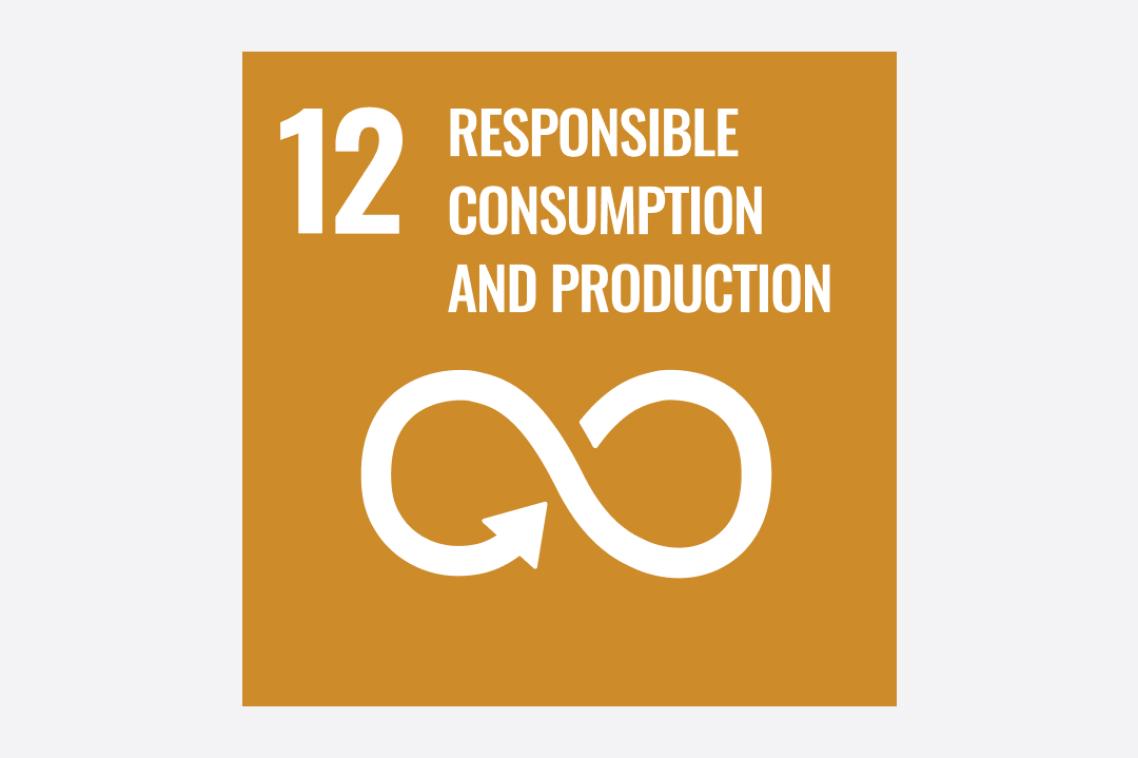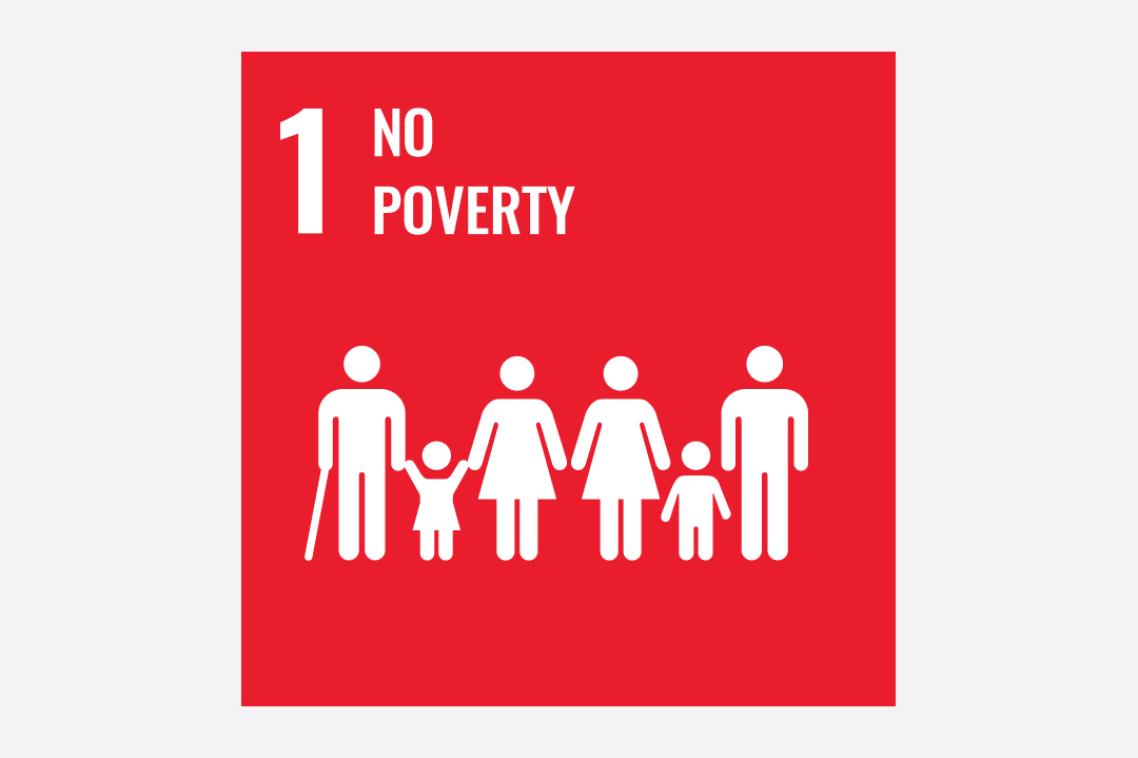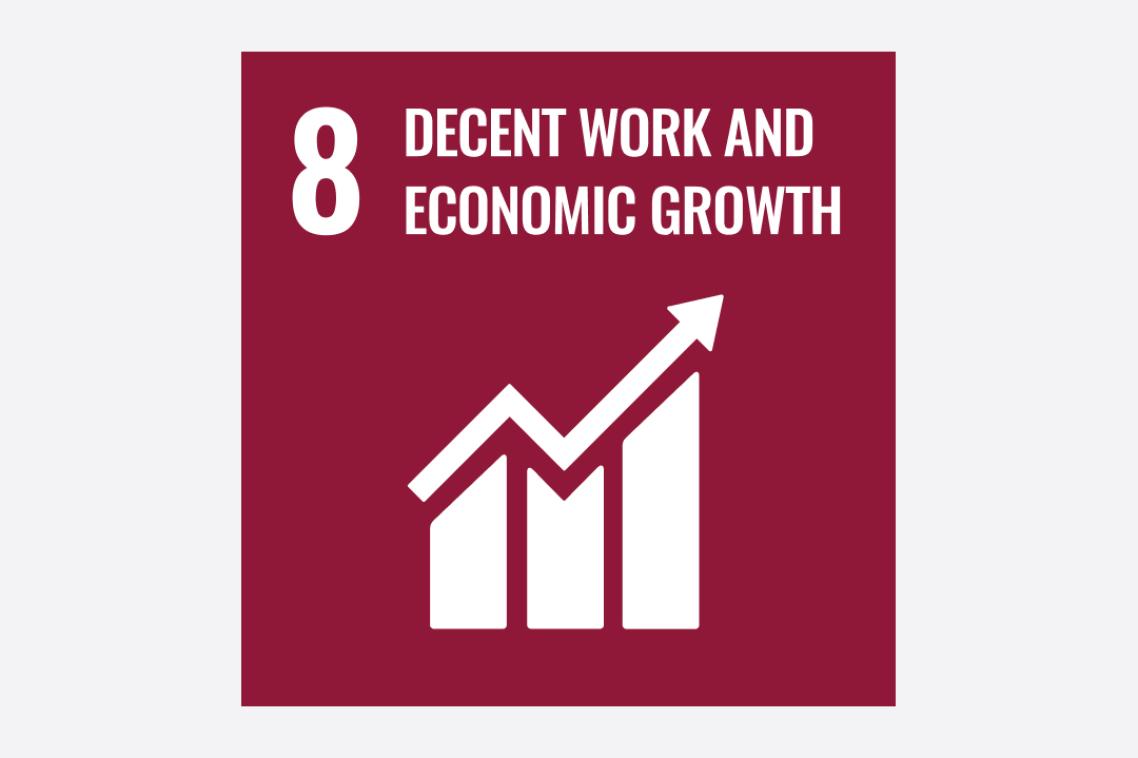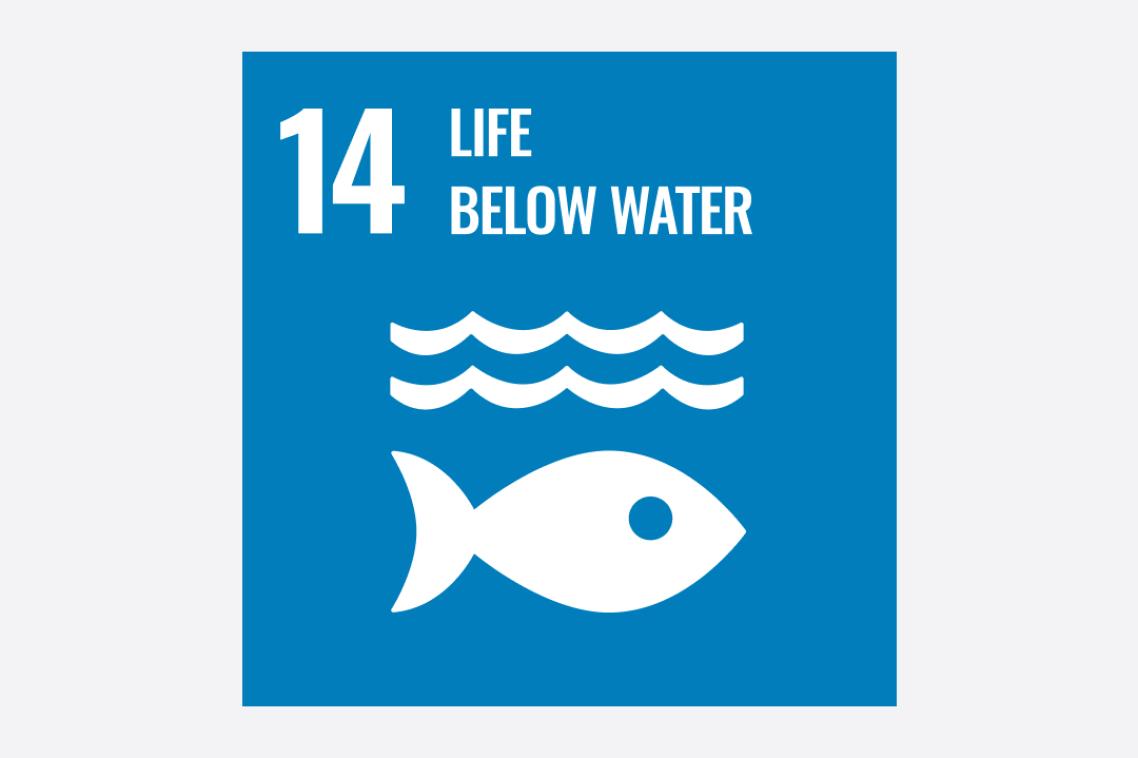SDG 12 – Responsible consumption and production

2024 progress
The University of Queensland (UQ) actively supports SDG 12: Responsible consumption and production through policies, operational measures, and impactful research. UQ’s Procurement Policy emphasises ethical sourcing, sustainability and responsible supplier engagement.
Waste management initiatives and programs like UQ Unwrapped promote plastic-free lifestyles, more than 100 recycling stations support waste reduction for campus retailers, and annual waste audits are undertaken to help identify opportunities for improvement and track progress toward waste reduction goals. UQ extends sustainability practices to outsourced services and suppliers, aligning procurement with environmental and social responsibility.
Research at UQ advances SDG 12 through innovations in mine waste monitoring, sustainable alternatives to a range of products including plastic and wastewater toxin reduction. The Biosustainability Hub and Australian Research Council Training Centre for Bioplastics and Biocomposites develop eco-friendly materials and scalable bioplastic solutions. Projects like biodegradable fruit packaging and marine bioplastic degradation studies showcase UQ’s commitment to reducing plastic pollution.
Read our SDG 12 2024 report (PDF, 233.28 KB)
See how we make a difference across key areas:
Operational measures
Ethical sourcing policy
As stated in UQ’s Procurement Policy, all procurement activities, including decisions and decision-making processes, will be consistent with applicable legal, regulatory, contractual and policy obligations and accountabilities, and demonstrate sound ethical behaviour. In particular, those engaging in procurement transactions will:
- retain and appropriately manage contract documents, including any variations and extensions.
- act with integrity and demonstrate ethical behaviour in accordance with UQ’s values, the Code of Conduct, UQ’s Procurement Policy, Procurement Procedure and the Probity and Integrity in Procurement Procedure
- ensure that any actual, perceived and/or potential conflicts of interests relating to procurement are declared, recorded and effectively managed.
Sustainability is an element of UQ’s ethical sourcing requirements and is defined in policy as: purchasing goods or services in a way that meets UQ’s current requirements and promotes and protects economic, environmental, ethical and social outcomes.
The UQ Sustainable Purchasing Guides (not publicly available) provide assistance on environmentally sustainable procurement considerations across multiple different categories.
Policy extensions to services and suppliers
As noted above, UQ's procurement planning process, as set out in the University's Procurement Policy requests the inclusion of sustainability considerations in all purchasing decisions. Additionally, UQ seeks to do business with ethically, environmentally and socially responsible suppliers. Suppliers are expected to meet the requirements of the Queensland Government Ethical Supplier Threshold (PDF, 420.62KB) and the UQ Supplier Standards (PDF, 531.9KB). These standards outline UQ’s principal expectations of our suppliers, and the standards in place to help us meet our responsible, social and legal requirements.
Suppliers have access to resources relating to procurement activities at UQ through the Supplying to UQ webpage.
Waste tracking, reduction and disposal
UQ is actively working to reduce waste through a range of initiatives aimed at minimising disposable items and landfill including:
- Reuse and recovery – UQ promotes the reuse of materials through initiatives like furniture repurposing and equipment donation, through UQ WarpIT, a Waste Action Reuse Portal which allows UQ staff to post unwanted items for donation or claim items for work purposes. UQ also promotes the reuse of items collected at UQ’s Reuse and Recycle Station like reading glasses, mobile phones, CDs.
- Waste audits and monitoring – annual waste audits help identify opportunities for improvement and track progress toward waste reduction goals.
- Education and engagement – UQ runs awareness campaigns and provides resources to staff and students to encourage responsible waste disposal and sustainable behaviours.
- Encouraging BYO coffee cups and water bottles – through awareness programs and cafe discounts.
- Providing guides for campus retailers and mobile food vendors – to support businesses on campus to reduce their plastic use. Additionally, a Sustainable Event Guide is available to support staff and students in minimising waste at events.
- Organics collection and composting – UQ collects organic waste, including paper towels from bathrooms and food scraps from kitchens and food outlets, and sends it for composting, diverting it from landfill.
- Recycling programs – The University provides clearly labelled recycling bins across campuses to encourage proper sorting of recyclables such as paper, cardboard, plastics, batteries, e-waste, printer cartridges, polystyrene, fluorescent tubes and lamps, corflute signs and metals.
- Requiring construction projects to implement the waste hierarchy – avoid, reduce, reuse, recycle, recover and dispose of waste – outlined in the UQ Design Standards (PDF, 1.16MB).
Disposal of hazardous materials
All chemical waste must be disposed of safely in accordance with the UQ Chemical Waste Operating Procedure. This procedure outlines the requirements for the disposal of laboratory and other chemical waste to minimise reactivity, toxicity or risk to persons or the environment during collection, storage and transportation prior to disposal. Laboratory staff must complete training before they start work with hazardous chemicals or laboratory work, with details provided in the training and induction requirements section of the UQ staff health and safety training and induction site.
Minimisation of plastic use
The UQ Unwrapped program assisted food outlets across UQ to switch from single-use plastics to reusable or compostable alternatives. UQ has guides for campus retailers and mobile food vendors to support businesses on campus in reducing their plastic use. Most cafes within The University offer discounts for BYO coffee cups, and we have installed more than 30 water refill stations across our 2 main campuses to encourage people to bring their own bottles from home.
Sustainability reporting
UQ is committed to supporting progress across the United Nations Sustainable Development Goals (UN SDG) through sustainable operations, teaching and student-support, community outreach, partnerships and research. UQ is a signatory to the Talloires Declaration, the University Campus Sustainability Declaration.
In addition to voluntary reporting, UQ fulfils mandatory sustainability reporting requirements, including compliance with the National Greenhouse and Energy Reporting Scheme (NGERS).
Explore our progress
Read more about how we're making progress toward other Sustainability Development Goals.







